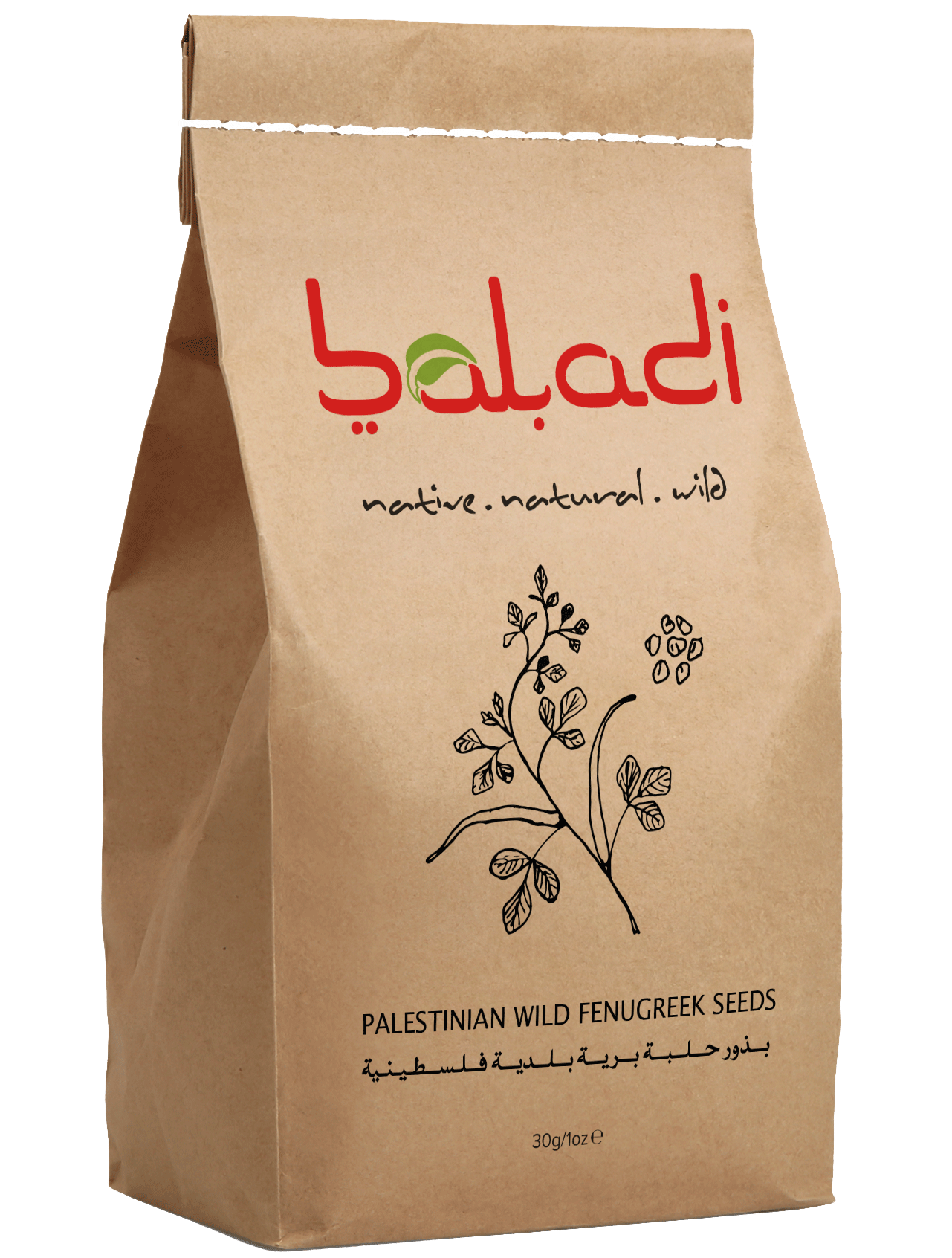-
Your shopping cart is empty!
Fenugreek (Hilbeh Baladiya)

Scientific Name : Trigonella Arabica Delile
Common Name : Arabian Fenugreek
Arabic Name : الحلبة العربية, Hilbeh
Plant Family : Papilionaceae
This is one of the most difficult herbs to find in Palestine. Nowadays when looking for the ancient authentic Palestinian fenugreek (Hilbeh Baladiya) this strain alongside many other native crops are threatened by extinction, due to two factors. First; the intensive care, labor, and time needed to produce and process fenugreek traditionally. Second the invasion of imported machinery-processed strains from countries as; Afghanistan, Pakistan, India, Iran, Nepal, Bangladesh, Argentina, Egypt, France, Spain, Turkey, and Morocco, and India the largest producer. Fortunately, this strain and all other Baladi crops are our top priority to protect from extinction and share with the rest of the world. So what makes this strain stand out against all the imported ones? The answer is simple; the taste is much more robust due to a large proportion of the “trigonelline” chemical found in the Palestinian baladi strain verses other imported varieties. We conducted a simple test by soaking 1 oz. of dry Fenugreek seeds from different sources in separate cups. The variances were obvious as the water turned dark yellow-orange in color in the baladi strain while almost no color change, if any, in other strains. Furthermore, when we tasted the water, the baladi strain was very strong to the point of being bitter, while others were mild and flavorless. As a result the baladi seeds have more intense flavor to the point where some may find that it has an odd scent resembling maple syrup. However, for locals, this is the best and only strain that can be used to make its delicacies as in fenugreek bread (fatayer Hilbeh), and sweets.